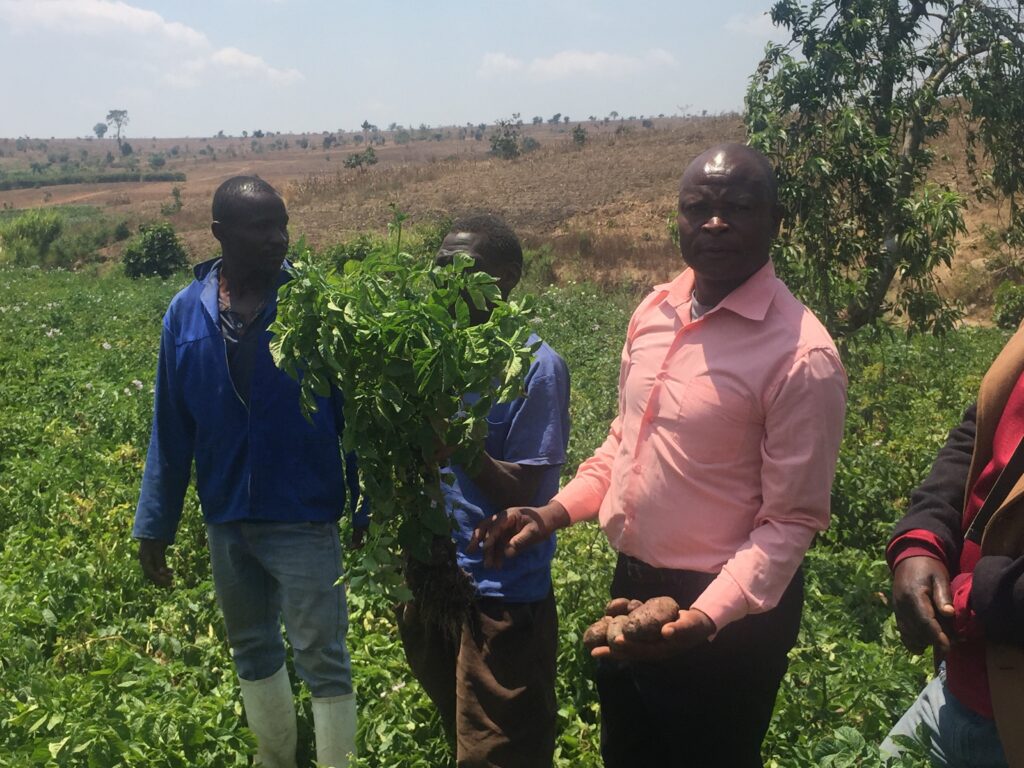By Chilungamo Missi

Blantyre, Mana: Irish Potato farmers in Dedza District have been urged to embrace climate smart agriculture as a response to adverse climate change situations which have lowered water levels for irrigation.
Knowledge Management and Communications Officer for Transforming Agriculture through Diversification and Entrepreneurship (TRADE) Programme, Oscar Ulili made the remarks on recently during a media tour at Kanyama Producers and Marketing Cooperative in Dedza.
The remarks came in response to farmers who said climate change is adversely affecting their productivity as some of the rivers where they tap water for irrigation have dried up, a situation which leaves them helpless.
“TRADE has been designed to mainstream environmental management and climate smart agriculture, so we have various interventions set to help these farmers practice climate smart agriculture.
“We have specialists encouraging smallholder farmers to adopt climate smart agriculture so that they know how to manage the environment and how they can adapt to climate change shocks,” Ulili said.
One of the farmers, Doris Mayitala from Gawanyumbu Village in the area of Traditional Authority Kasumbu in the district, said Irish potato farming needs enough water and due to erratic rainfall, they are facing difficulties to produce to their full capability.
“Sometimes water is finished before the potatoes start producing, this makes it hard to have a good harvest; if programmes like TRADE can help us with solar powered water pumps, the situation can improve,” Mayitala said.
Mayitala added that potato farmers in the area are set to adopt climate smart agriculture and improve their farming practices by growing improved varieties so that they match the current market trends.
TRADE is a six year government programme aimed at improving livelihoods of people living in rural areas through agribusiness.
The programme is supported by the International Fund for Agriculture (IFAD) and Opec Fund for International Development (OFID) to the tune of US$ 125.4 million (an equivalent of K130 billion).

